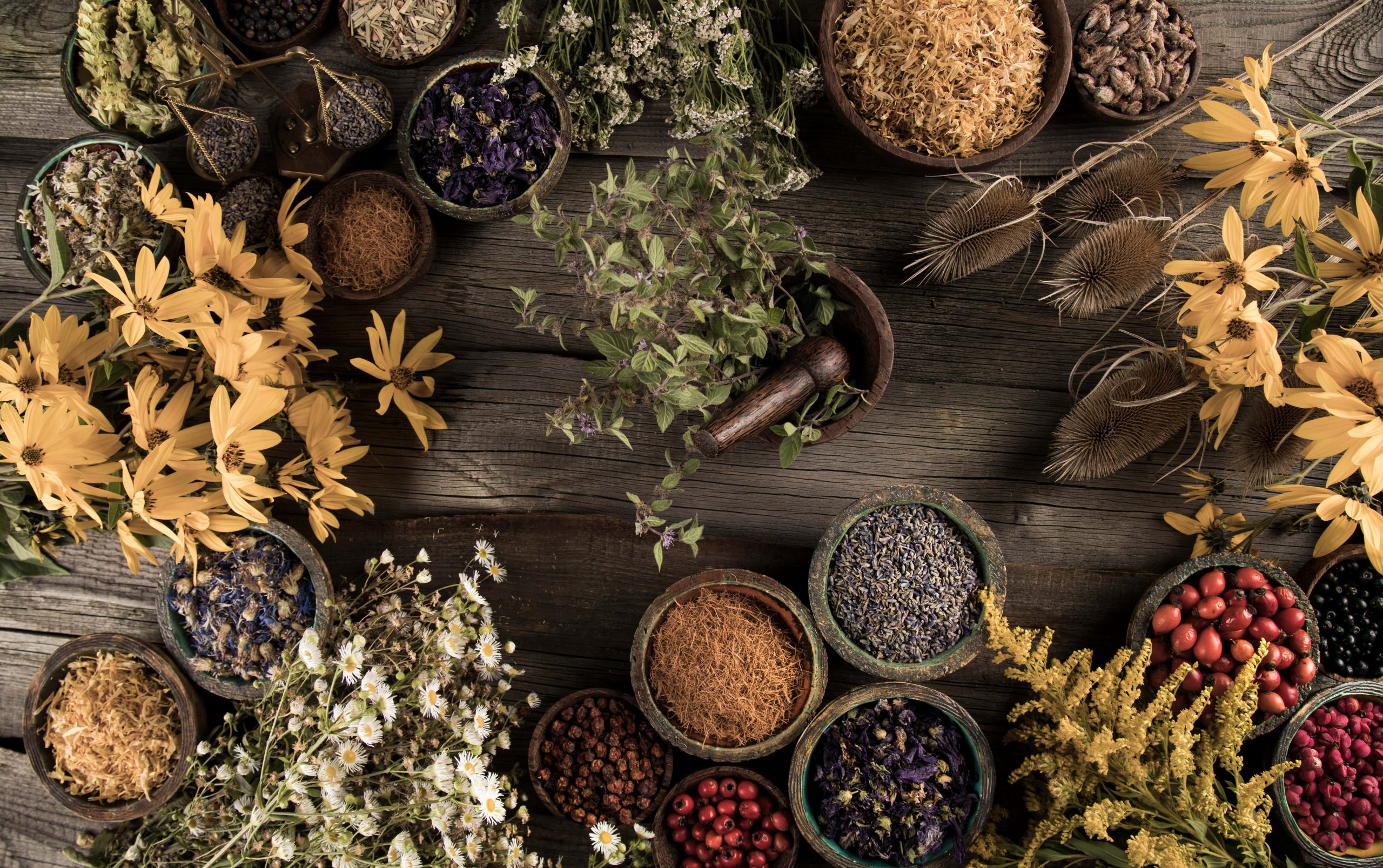Herbal medicine has been used for a very long time to solve various healthcare needs. There are numerous herbal plants with great medicinal values stretched across the globe. They can be chewed, spread on the skin, drunk as concoctions, or taken as supplements.
Medicine and technology have advanced so much in this era that it would be less meaningful to seek for herbal medications. However, the demand for herbal medications is steadily rising. Most herbal remedies offer convenient and affordable solutions than conventional medicines. They also fit into individual’s health ideologies making them most preferred. Noteworthy, not all herbal medicines are safe for you. This article discusses most preferred, popular, and safe herbal medicines.
1. Echinacea
Also called coneflower, echinacea has long been used as a herbal remedy. This flowering plant is native to North America, and is currently being used in Native America to treat many health issues, including wounds, burns, sore throat, toothaches, and abdominal discomforts. The roots of echinacea are the most commonly used due to their strongest effect. However, other parts of the plant such as petals and leaves can also be used to deliver the same medicinal values. Commercial echinacea is marketed as tea or supplement but can also be applied directly on the skin. Today, echinacea is used to treat respiratory problems, particularly common cold. Generally, the herb is considered safe for use, especially for short-term. Studies have not established effects associated with long-term use. That being said, you may experience stomach pain, nausea, and skin rash.
2. Ginseng
Ginseng is an old medicinal plant that has been used to treat various illnesses. Its roots are steeped or dried to make tea or powder respectively. It is part of traditional Chinese medicine, where is used to treat inflammation, as well as improving brain function, immunity, and boosting energy levels. There are several varieties of ginseng, but Panax ginseng and Panax quinquefolis of Asia and America respectively, are the most common. American ginseng is often used as a sedative, while the Asian ginseng use as a stimulant. The efficacy of ginseng for treating ailments have not been confirmed by modern research. Animal and test-tube studies have shown that the herb contains powerful compounds called ginsenosides, which possesses anti-cancer and anti-diabetes properties. They can also protect the nervous system and improve immune response. Potential side effects of this herb include, headaches, difficulty sleeping, and digestive problems.
3. Ginkgo Biloba
Ginkgo biloba, or ginkgo, is a herbal medicine produced from the leaves of the maidenhair tree. It is native to China, where it has been as part of traditional Chinese medicine for a couple of centuries. Today, ginkgo is the leading herbal supplement that people buy. It is rich in a variety of powerful antioxidants that may benefit your health in many ways. Traditionally, the leaves and seeds of ginkgo are used to make tinctures and teas. However, modern application of the herb uses its leaf extracts. The fruits can also be eaten raw, but the seeds should be enjoyed in small quantities as they are toxic. Ginkgo biloba can be used to treat several conditions such as dementia, sexual dysfunction, heart disease, and mental difficulties. Common side effects with this herb may include digestive problems, palpitations, increased risk of bleeding, skin rashes, and headaches.
4. Elderberry
Elderberry has been used as a herbal medicine for thousands of years and it is derived from cooked fruit of Sambucus nigra plant. This ancient herbal remedy has been used to manage toothaches, constipation, viral infections, nerve pain, and headaches. Today, elderberry is used to lessen the severity of symptoms of flu and common cold. Elderberry can be found in form of syrup or lozenge. Though more human studies are needed, animal studies have demonstrated that elderberry contains powerful plant compounds with potent antimicrobial, antioxidant, and antiviral properties. The herb can be used safely for over a short time. Their fruits however, may cause side effects like diarrhea, nausea, and vomiting.
5. St. John’s Wort
St. John’s Wort (SJW) is a popular herbal medicine made from the Hypericum perforatum. The medicinal property of the plant is especially in its yellow flowers, which are used to make extracts, teas, or capsules. It was originally used in Greece, and today European medical professionals prescribe SJW for a variety of ailments. It has long been used to promote wound healing, treat insomnia, depression, as well as diseases of lung and kidney. In fact, its often used to manage mild to moderate depression. SJW is safe for short-term use and may cause side effects like confusion, dizziness, dry mouth, photophobia, and allergic reactions. It has also been shown to interact with certain medications, including blood thinners, oral contraceptives, certain analgesics, antidepressants, and anticancer treatments.
6. Turmeric
Turmeric, Curcuma longa, is a powerful herb of the ginger family. It is popularly used as a spice and medicine alike, and current research has shown that it possesses powerful anti-inflammatory properties. Turmeric is particularly rich in curcumin – its active and powerful compound. It may treat a variety of ailments, including pain, chronic inflammation, metabolic syndrome, and anxiety. Studies reveal that turmeric can help manage pain associated with arthritis just as effectively as ibuprofen, a common anti-inflammatory medication. Supplements of curcumin and turmeric are safe for use, but may present with headache, skin irritation, and diarrhea in high doses.
7. Ginger
Ginger is an old herbal medicine and ingredient as well. It can be taken fresh or dried. However, its medicinal properties are more concentrated in form of tea or capsule. It is in the same family as turmeric and is said to contain powerful compounds that can help treat nausea, high blood pressure, migraines, and colds. Pregnant women often use ginger to treat morning sickness, a minor pregnancy disorder that presents with nausea. It can also be used to treat alleviate nausea that is associated with chemotherapy or certain medications.
Conclusion
The demand for herbal medicine is steadily on the rise. They have been used for several centuries to treat different ailments like common cold, depression, nausea, and inflammation. Studies also show that they can be as effective as conventional medications, with little to no side effects.
- Learn to Enjoy Self-care Routine - September 21, 2023
- Jonathan Aufray’s Story - July 29, 2023
- From Public Housing To Ivy League: The Inspiring Journey of Crystaltharrell.com and its Founder - June 7, 2023







